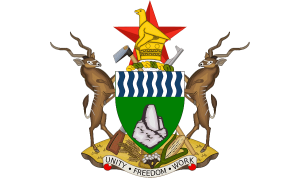Find us on social media
- Completed and signed Appointment form
- Contract document
- Copy of Treasury concurrence
- Completed Assumption of duty form/ minute (original)
- Civil Service Commission Referral letter (original)
- Police Clearance forms (original)
- Method of pay advice form (original)
- Completed medical examination report (original) on one sheet
- Birth certificate (certified copy)
- National I.D. card (certified copy)
- Relevant qualifications (certified copies)
- Marriage certificate (certified copy where applicable)
- For junior grades (A and B), a National Employment Services
- Department Card should be attached
The movement of a member within the grade or from one grade to another higher grade after having satisfied conditions laid down in the relevant advancement procedures. The conditions are as follows: relevant qualifications, experience, satisfactory performance and the Public Service Commission Approval.
The Public Service Commission in its minute dated 11 March 2013 suspended the processing of performance advancements service-wide. The Commission in its minute dated 29 September 2022 re-activated the processing of advancements with effect from 2012 and placed the members on correct grades effective 1 January 2023.
The member is paid the annual difference between the maximum salary step and the step immediately below the maximum.
The member has to perform satisfactory and advance through the advancement grades up to the highest level.
Yes, to qualify for promotion one should be in the relevant grade immediately below the promotional grade. Such a grade is reached through movements brought about by performance advancements.
Relevant qualifications, experience and exceptional performance.
There is what is known as Promotion Probation and this is where a member’s performance will be assessed. After successfully completing this period the member will retain the position to which they would have been promoted.
Up to one year
A member would have reached the maximum salary step of his/her grade immediately below the promotional grade, has successfully completed a year of service on the ceiling and has shown exceptional work performance. The member is then allowed to enjoy the salary and allowances of the next promotional grade except for promotional allowances.
Once the senior teacher is in E1, he or she will progress by moving step by step to the maximum notch. When the senior teacher gets to the maximum salary step of E1 and completes one year , upon exceptional performance of the member may be advanced through parallel progression to the next higher promotional grade of the deputy headmaster (E2).
NB: Parallel progression needs express authority from the Public Service Commission. Its provision is there in the Principal Procedures but the green light to implement has not been given by the Commission.
Yes, Every advancement comes with an upward salary movement except for members who are on the ceiling of their advancement grades. However, such members are awarded a once off performance allowance equivalent to the difference between the maximum annual salary step of that grade and the annual salary step immediately below the maximum salary step. A ceiling is the highest salary step of the highest advancement grade which is below the promotional grade.
The role of the Performance Audit is to implement measures that ensure effective and efficient performance within, and the overall well-being of, the Public Service. Section 203 of the Constitution of Zimbabwe anchors this role.
The department strengthens the Public Service Commission’s efforts in facilitating the delivery of responsive services and promoting economic growth and development through enhanced policy, institutional, and operational capacity of line Ministries, Departments, and Agencies.
The Performance Audit and Inspectorate Department (PAID) conducts performance audits through Public Service Inspectors stationed in all districts countrywide. These audits are done by systematically examining systems and operations of the PSC Secretariat and MDAs to ascertain adherence to principles of economy, efficiency and effectiveness.
Performance auditing focuses on analysing the economy, efficiency and effectiveness (3Es) of government operations, with an emphasis on optimal resource usage and compliance. In contrast, Monitoring and evaluation (M&E) helps programs learn and adapt by recording progress and assessing outcomes, as well as providing real-time feedback to managers and implementers.
Members or citizens may contact the following if they want to engage the Inspectorate Department
Province | Name/Designation | Landline | Cell |
Head Office | Mr. T. Muchenje – Inspector General | 0242700881-4 | 0712939430 |
Bulawayo | Chief Provincial Inspector | 0292887833 |
|
Harare | Chief Provincial Inspector | 0242708093 |
|
Manicaland | Chief Provincial Inspector | 0202060090 |
|
Mash Central | Chief Provincial Inspector | 0662106729 |
|
Mash East | Chief Provincial Inspector | 0652325709 |
|
Mash West | Chief Provincial Inspector | 0672127884 |
|
Masvingo | Chief Provincial Inspector | 0392265193/1 |
|
Mat North | Chief Provincial Inspector | 0292887619 |
|
Mat South | Chief Provincial Inspector | 0842824533 |
|
Midlands | Chief Provincial Inspector | 0542231199/0542231298 |
|

